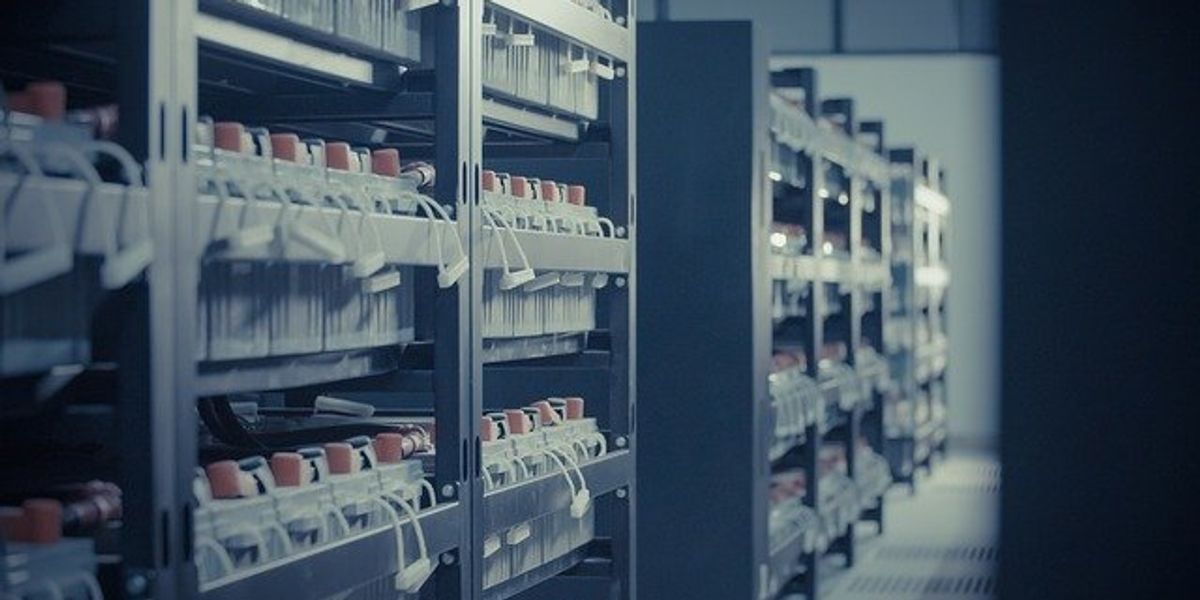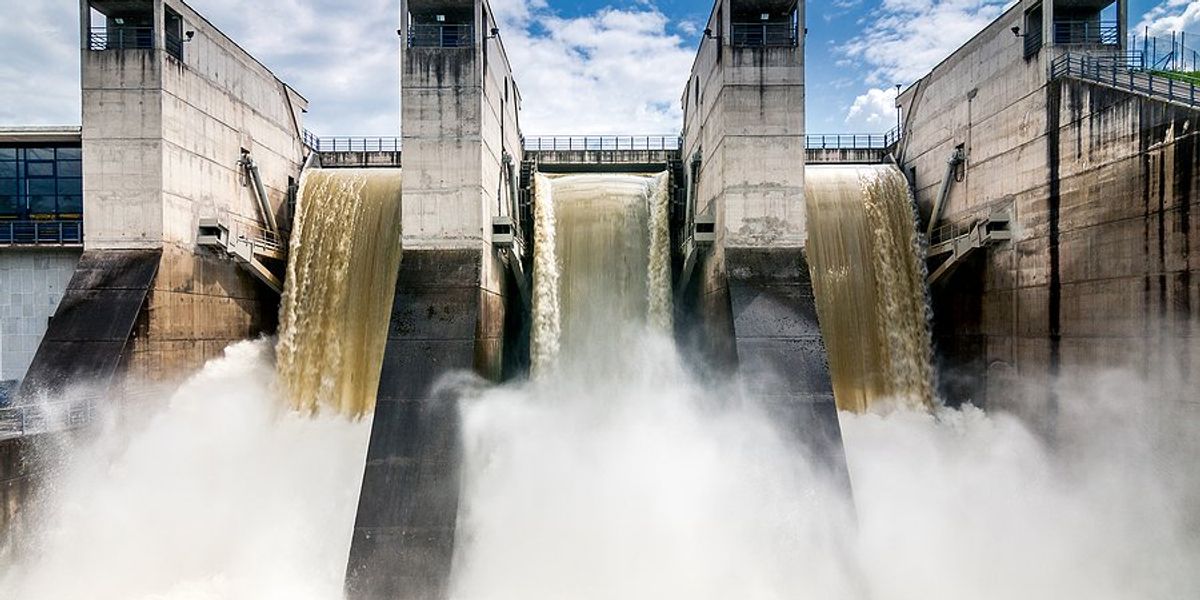technology
Scientists use bacteria to recycle metals from old batteries for green tech
Scientists are using bacteria to extract rare metals from discarded batteries and electronic waste, a breakthrough that could support the future of green technology.
In short:
- University of Edinburgh researchers are using bacteria to recycle metals like lithium and cobalt from old electronics.
- These metals are crucial for electric cars, wind turbines and other green technologies, yet are in limited supply.
- Bacteria naturally latch onto and expel these metals, offering a sustainable recycling method.
Key quote:
“Bacteria are wonderful, little crazy things that can carry out some weird and wonderful processes.”
— Louise Horsfall, chair of sustainable biotechnology at the University of Edinburgh.
Why this matters:
The limited supply of rare metals needed for green technology is a major hurdle in combating climate change. Bacterial recycling could create a sustainable loop for these essential materials, reducing dependence on finite resources.
Be sure to read: Recycling critical metals from electronics could ease mining impacts
Tech alone won’t fix farm food waste without labor reforms
Farmers are using technology to reduce food waste, but without addressing labor abuses and immigration policies, these efforts fall short.
In short:
- New technologies like composting systems, anaerobic digesters, and AI programs are helping reduce farm food waste.
- Labor abuses and immigration issues remain significant obstacles to effective food waste management.
- Solutions include stricter enforcement of labor laws and pathways to citizenship for farmworkers.
Key quote:
“We got hit when we lost the crop. Growers who had invested millions of dollars got nothing in return. And once there were no longer any Florida tomatoes on the market, prices soared to over $20 a box.”
— Industry representative
Why this matters:
Addressing food waste requires technological advancements and significant labor reforms to ensure fair treatment of farmworkers and a stable agricultural workforce. When workers are treated fairly and protected by robust legal frameworks, they are more likely to perform their jobs effectively, leading to less food waste and a more resilient agricultural sector.
California town looks to carbon capture amid oil industry's decline
Kern County explores a novel approach to sustain its economy by leveraging carbon capture technology, shifting from traditional oil revenues.
In short:
- Les Clark III oversees the West Side Recreation and Park District in Taft, heavily funded by the local oil industry, which faces significant decline.
- California Resources Corporation proposes a carbon capture project to rejuvenate local jobs and maintain public services without relying on government bailouts.
- Skepticism remains among local communities about the safety and actual benefits of storing carbon dioxide underground.
Key quote:
"There’s some kind of window of opportunity, because the industry is trying to evolve."
— Les Clark III, manager of the West Side Recreation and Park District in Taft
Why this matters:
Carbon capture and storage technology, which involves capturing carbon dioxide emissions from sources like power plants and industrial processes before they enter the atmosphere and storing them underground, is gaining traction globally as a tool to combat global warming. For Kern County, which produces about 70% of California's oil, this technology could transform the very infrastructure that once bolstered its economy into a new, greener legacy.
How AI is transforming weather forecasting"
Artificial Intelligence is now challenging traditional methods in predicting extreme weather events, offering potentially more accurate forecasts.
In short:
- AI models from tech giants like Google and Nvidia are utilizing historical data to predict weather, marking a significant shift from conventional forecasting techniques.
- These AI-driven models excel in predicting extreme weather conditions, showcasing a blend of technological advancement and meteorological science.
- The development of these models, such as Google's GraphCast and Nvidia's FourCastNet, represents a leap forward in weather prediction capabilities.
Why this matters:
The integration of AI in weather forecasting is important for timely and accurate predictions of extreme weather, directly impacting public safety and preparedness. This advancement aligns with broader trends in technology's role in enhancing critical aspects of public health and safety.
How artificial intelligence can help save us from air pollution.
Japan innovates with climate bonds to fund green technology
Japan, leveraging its technological prowess, has become the first country to issue sovereign bonds specifically for funding climate change initiatives and green technology.
In short:
- Japan has initiated the sale of climate bonds, aiming to raise 20 trillion yen to support its green transition, referred to as GX.
- The bonds are designed to attract private investment into projects like low-cost wind power, carbon recycling, and advanced batteries.
- This move is part of Japan's broader goal to halve its greenhouse gas emissions by the end of the decade and achieve zero emissions by 2050.
Key quote:
"This bond shows clearly how governments, and others, can raise funds to invest in that transition. It marks a significant milestone in transition finance."
— Sean Kidney, head of the Climate Bonds Initiative.
Why this matters:
Japan's innovative approach to financing its green transition through climate bonds represents a significant step in global efforts to combat climate change. It sets an example for how countries can mobilize private capital for sustainable development and technological advancements in clean energy.
Be sure to read Douglas Fischer’s 2019 article: Financial markets push for sustainability, climate accountability.
Greenpeace CTO urges tech industry to embrace sustainability
Greenpeace's Chief Technology Officer, Priscilla Chomba-Kinywa, highlights the need for the tech industry to prioritize environmental sustainability.
In short:
- Chomba-Kinywa emphasizes the critical role of technology in addressing the climate crisis, with a stark reminder of the limited time left to make significant changes.
- She advocates for the development of green, ethical tech platforms and praises companies like Hyundai for their environmentally conscious decisions.
- The article underscores the importance of using data effectively, as demonstrated by Greenpeace's efforts to persuade tech giants to adopt renewable energy sources.
Key quote:
"We’re talking about values, ethics, and putting guardrails in place—but we can’t do that without talking about the environment."
— Priscilla Chomba-Kinywa, CTO of Greenpeace
Why this matters:
This article connects technology with environmental sustainability, highlighting the responsibility of tech companies and consumers in shaping a sustainable future, resonating with the current global emphasis on environmental issues.
Revolutionizing recycling with AI technology
Artificial intelligence is set to overhaul the recycling industry, promising more efficient sorting and reduced contamination.
In short:
- AI systems will be integrated into thousands of recycling facilities worldwide, enhancing the accuracy of sorting recyclables.
- This technology aims to significantly reduce the contamination in recycled materials, increasing their value and usability.
- The implementation of AI in recycling could have a substantial impact on reducing greenhouse gas emissions and environmental pollution.
Key quote:
“Today’s technology cannot really detect all the contamination that could be coming with those plastics. But if you know what contaminants are coming, there’s a better chance you will be able to process it and get a cleaner product.”
— Lokendra Pal, professor of sustainable materials engineering at North Carolina State University
Why this matters:
AI's role in improving recycling processes addresses a significant challenge in waste management, potentially leading to better health outcomes by reducing pollution and conserving resources.


















